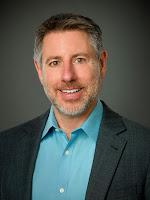VIRTUAL TALK THIS WEDNESDAY
John Bateman...scientist, conservationist, assistant professor, Honors advocate, and all around good guy. He has so much enthusiasm and passion for the world around us and wants to share that with everyone. His unique approach to all things science is one that is infectious (see what I did there? Science word?) for everyone...even those of us who claim that science is not a strength (or maybe even a joy). When I asked him to describe his talk this Wednesday (and his class in the spring), this is what he had to say: Are you curious about the world around you? Have you ever wondered about the world around us or natural phenomena you’ve witnessed, such as how a rainbow forms, how our universe began, or why we no longer have dinosaurs? If so, you’re already on the path to being a scientist. While the word “science” can intimidate a lot of people, at its root it is about curiosity and inquiry, finding order out of chaos, and testing predictions. Science is a powerful discipline that has reshaped our society again and again. Can you imagine a world without it? It would be like going back to the Stone Age, as the growth of humankind is dependent upon science. Without it, progress stops. So, imagine for a second…what would your life be like without antibiotics, clean water, electricity, or (gasp!) your smartphone? Despite this, we live in a time where the word science in America seems to have a stigma attached to it. Half-truths and outright lies have created a cloud of doubt that hangs over the heads of too many citizens, and due to this, progress is likely slowing as a result.This coming spring, I am teaching an Honors science course that is designed for non-science majors and this Wednesday, I'm going to touch on some of the things the course will entail. In short, we are going to talk science in the modern age and how we can all take steps to juggle everything that is out there. In the talk (which does not require you to take the course), I hope to start to instill an appreciation for science and an understanding of the scientific method. I want students to be able to comprehend the level of rigor and certainty it takes for a new finding to be deemed acceptable by the scientific community. We will cover a number of science topics that are considered hot-button issues in our country, such as vaccines, evolution, the age of our Earth, climate change, gene modification, and the re-wilding of extinct species.






